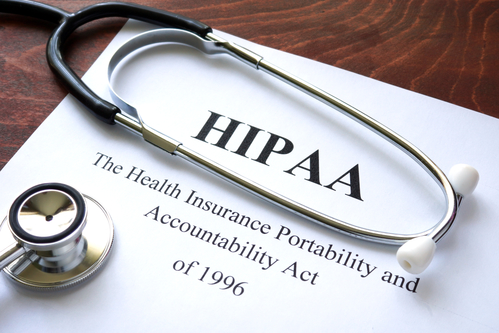
Clinical studies rely on patient data; but before obtaining this information, study participants must first be clear on what they are signing up for. The United States Government takes personal health information very seriously, and in 1998, The Health Insurance Portability and Accountability Act (HIPAA) was created to protect and ensure the confidentiality of all Americans who utilize the healthcare system.
The Health Insurance Portability and Accountability Act of 1998, more commonly known as HIPAA, mandates standards for how physicians may use and disclose protected health information (PHI). Created in response to public concern over healthcare information, patients must give written authorization before an organization may use or disclose patient’s protected health information for any purpose.
Healthcare plans; employers and medical providers are all affected by this policy. The government regulates businesses and organizations impacted by HIPAA via legal compliance policies. HIPAA also stipulates fines for organizations that do not comply with the standards and operating policies.
What authorizations do participants need to sign before beginning a clinical trial?
Prior to beginning a clinical study, participants must first review certain documents to ensure a comprehensive understanding of the study. If you decide to participate in a clinical trial, you may be asked to sign two documents: an authorization form, and an informed consent document.
The informed consent document will detail the study methodology, any potential risks, timeline, participant confidentiality and healthcare coverage during the course of the study. This document may or may not be combined with an authorization form.
A few elements that may be present in the authorization may include:
You do not have to sign this authorization, but if you decline, you may not be eligible for study participation. Revoking this permission means you will no longer be eligible for participation within the clinical study.
Throughout the clinical study process, researchers may need to create, edit, and view PHI. HIPAA stipulates that participant PHI must be used in a “specific and meaningful manner.”
All study participants must submit authorizations in order for the researchers to have access to their pertinent information. This authorization only applies to the current study, and not to any future studies. Learn more about HIPAA and PHI authorizations at The National Institutes of Health.
At the Orlando Clinical Research Center, we offer a variety of clinical trials and research studies in which you can participate in our state-of-the-art clinical research facility. We are committed to following all policies and precautions to ensure the wellbeing of our volunteers. Additionally, we utilize a secure socket website, providing an additional layer of protection and ensuring data protection.
If you are interested in participating, please tell us a little more about yourself in the Contact section of the home page and we will respond to you to determine your eligibility for current and future studies.
